Remember that time you swore off carbs for a week, only to find yourself face-down in a box of donuts by day three? Yeah, me too. Diets are notorious for their unsustainable restrictions and inevitable rebounds. But what if I told you there's a way to lose weight, feel energized, and actually enjoy your meals? Enter the Oatmeal Reset: a 7-day journey that will transform your relationship with food and your waistline – all thanks to the humble power of oats. No deprivation, no calorie counting, just delicious, wholesome meals that will leave you feeling satisfied and craving more. Get ready to ditch the diet drama and discover the simple joy of eating for weight loss.
Oatmeal: Your Weight-Loss Wonderfood

Forget those sugary cereals and carb-loaded pastries. Oatmeal is the unsung hero of your breakfast bowl, packing a nutritional punch that goes way beyond just keeping you full until lunch. This humble grain is a powerhouse of nutrients, including fiber, protein, and essential vitamins and minerals, that work together to support your weight loss journey in multiple ways:
- Fiber-Fueled Fullness: Oatmeal is a fiber superstar, with both soluble and insoluble fiber working together to keep you feeling satisfied and energized. Soluble fiber forms a gel-like substance in your stomach, slowing down digestion and preventing blood sugar spikes. Insoluble fiber adds bulk to your stool, promoting regularity and keeping things moving smoothly. This means fewer cravings, less snacking, and a natural reduction in calorie intake.
- Low in Calories, High in Satisfaction: Compared to many breakfast options, oatmeal is surprisingly low in calories, especially when prepared with water or unsweetened milk. This allows you to enjoy a hearty portion without guilt, further supporting your weight loss goals. Plus, the fiber content helps to expand in your stomach, tricking your brain into thinking you've eaten more than you actually have.
- Metabolism Booster: The complex carbohydrates in oatmeal are digested slowly, providing a sustained energy release that keeps your metabolism humming along. This means your body is burning calories more efficiently throughout the day, even at rest.
- Fat-Fighting Fiber: Soluble fiber isn't just good for your digestion; it also helps to lower cholesterol levels by binding to cholesterol particles in your gut and preventing them from being absorbed into your bloodstream. This can help to reduce your risk of heart disease and other health problems associated with excess weight.
Not only is oatmeal a nutritional powerhouse, it's also incredibly versatile. You can enjoy it hot or cold, sweet or savory, with endless topping options to keep things interesting. Think berries, nuts, seeds, spices, fruits, and even vegetables – the possibilities are endless!
Remember: Choose steel-cut or rolled oats over instant varieties, as they are less processed and retain more of their natural nutrients and fiber.
Why This Plan Works

The Oatmeal Reset isn't just another fad diet; it's a strategic approach to weight loss that leverages the unique properties of oatmeal to set you up for success. Here's why this plan works:
- Sustainable and Satisfying: Unlike crash diets that leave you feeling deprived and miserable, the Oatmeal Reset focuses on whole, unprocessed foods that nourish your body and keep you feeling full and satisfied. You won't be constantly battling cravings or counting down the minutes until your next meal. This makes it easier to stick with the plan long-term, leading to sustainable weight loss.
- Gradual and Gentle: The Oatmeal Reset isn't about drastic changes or extreme restrictions. It's a gradual approach that allows your body to adjust and adapt. This minimizes the risk of rebound weight gain and helps to establish healthy habits that you can maintain even after the 7-day reset is over.
- Focus on Whole Foods: The Oatmeal Reset emphasizes whole, unprocessed foods, including fruits, vegetables, lean proteins, and healthy fats. This ensures that your body is getting the nutrients it needs to function optimally, while also reducing your intake of processed foods, added sugars, and unhealthy fats that can contribute to weight gain.
- Flexible and Customizable: The Oatmeal Reset is designed to be flexible and adaptable to your lifestyle and preferences. You can choose your favorite oatmeal toppings, experiment with different flavor combinations, and adjust the meal plan to fit your individual needs. This makes it easier to stick with the plan and prevents boredom or burnout.
- Promotes Healthy Habits: The Oatmeal Reset is more than just a meal plan; it's a lifestyle change that encourages you to develop healthy habits around food and nutrition. By focusing on whole foods, mindful eating, and regular exercise, you'll be setting yourself up for long-term success and improved overall health.
This plan isn't about deprivation or quick fixes. It's about nourishing your body, establishing healthy habits, and achieving sustainable weight loss. With the Oatmeal Reset, you'll feel better, look better, and be on your way to a healthier, happier you.
The 7-Day Oatmeal Reset Meal Plan

This meal plan is designed to be a starting point for your oatmeal adventure. Feel free to adjust it based on your preferences and dietary needs. Remember, the key is to focus on whole, unprocessed foods and to listen to your body's hunger and fullness cues.
Phase 1: Oatmeal Power Days (Days 1-2)
During this initial phase, you'll be fueling your body with three delicious oatmeal meals per day. This will help to kickstart your weight loss, curb cravings, and reset your taste buds.
- Breakfast: Oatmeal with berries, nuts, and a drizzle of honey or maple syrup.
- Lunch: Savory oatmeal bowl with cooked vegetables (e.g., spinach, mushrooms, onions), lean protein (e.g., grilled chicken, tofu), and a sprinkle of herbs and spices.
- Dinner: Oatmeal porridge with a dollop of Greek yogurt, a sprinkle of cinnamon, and a side of fruit.
Phase 2: Transitioning to Balance (Days 3-4)
In this phase, you'll gradually reduce your oatmeal intake to two meals per day, incorporating more variety into your diet while still enjoying the benefits of this superfood.
- Breakfast: Oatmeal with your favorite toppings (e.g., sliced banana, almond butter, chia seeds).
- Lunch: Salad with grilled chicken or fish, mixed greens, and a variety of vegetables.
- Dinner: Oatmeal with leftover cooked vegetables and lean protein from lunch.
Phase 3: Maintaining Momentum (Days 5-7)
As you enter the final phase of the Oatmeal Reset, you'll continue to enjoy one oatmeal meal per day, along with a variety of other healthy and satisfying options.
- Breakfast: Eggs with avocado and whole-wheat toast.
- Lunch: Lentil soup with a side salad.
- Dinner: Oatmeal with your choice of toppings (e.g., berries, nuts, seeds).
Snack Ideas:
- Fresh fruit
- Vegetables with hummus
- Hard-boiled eggs
- Plain yogurt with berries
- A handful of nuts or seeds
Remember:
- Drink plenty of water throughout the day to stay hydrated and support your weight loss efforts.
- Listen to your body's hunger and fullness cues and adjust portion sizes accordingly.
- Don't be afraid to experiment with different oatmeal recipes and toppings to keep things interesting.
- If you feel hungry between meals, reach for a healthy snack like fruit, vegetables, or a handful of nuts.
By following this meal plan and incorporating healthy habits into your daily routine, you'll be well on your way to achieving your weight loss goals and feeling your best.
Tips for Success
To get the most out of your Oatmeal Reset and achieve your weight loss goals, consider these helpful tips:
- Stay Hydrated: Water is essential for overall health and weight loss. Aim for at least eight glasses of water per day, and consider adding a squeeze of lemon or a few slices of cucumber for flavor. Herbal teas and infused water are also great options to keep things interesting.
- Prioritize Protein: Protein helps to keep you feeling full and satisfied, while also supporting muscle growth and repair. Make sure to include a source of lean protein with each meal, such as eggs, chicken, fish, tofu, beans, or lentils.
- Don't Skip Meals: Skipping meals can lead to overeating later in the day and can slow down your metabolism. Stick to the meal plan and make sure to eat regular, balanced meals throughout the day.
- Listen to Your Body: Pay attention to your body's hunger and fullness cues. Eat when you're hungry, and stop when you're comfortably full. Don't force yourself to eat if you're not hungry, and don't feel obligated to finish everything on your plate if you're satisfied.
- Get Moving: Exercise is an important part of any weight loss plan. Aim for at least 30 minutes of moderate-intensity exercise most days of the week. This could be anything from brisk walking to dancing to swimming.
- Be Patient: Weight loss takes time and effort. Don't get discouraged if you don't see results immediately. Stick with the plan, be patient, and celebrate your small victories along the way.
- Make It Your Own: The Oatmeal Reset is just a guideline. Feel free to adjust the meal plan and recipes to fit your personal preferences and dietary needs. The most important thing is to find a way of eating that you enjoy and can stick with long-term.
By following these tips and staying committed to your goals, you'll be well on your way to achieving sustainable weight loss and improved overall health. Remember, the Oatmeal Reset is just the beginning of your journey towards a healthier, happier you.
Your Oatmeal Adventure Awaits

The Oatmeal Reset is more than just a meal plan – it's a journey towards a healthier, happier you. By embracing the power of oatmeal and incorporating it into your daily routine, you'll be nourishing your body, fueling your metabolism, and setting yourself up for long-term success.
Here's what you can expect on your oatmeal adventure:
- Increased energy and vitality: Oatmeal's complex carbohydrates provide sustained energy release, keeping you feeling energized throughout the day.
- Improved digestion and gut health: The fiber in oatmeal promotes regularity and supports a healthy gut microbiome, which is essential for overall health and well-being.
- Reduced cravings and appetite: Oatmeal's filling fiber and protein content help to curb cravings and prevent overeating.
- Sustainable weight loss: By focusing on whole, unprocessed foods and incorporating healthy habits into your lifestyle, you'll be able to achieve and maintain a healthy weight.
- A newfound appreciation for this versatile superfood: You'll discover new and exciting ways to enjoy oatmeal, from savory breakfast bowls to sweet and satisfying desserts.
So what are you waiting for? Embark on your oatmeal adventure today and discover the delicious and nutritious possibilities that await you!
Remember:
- The Oatmeal Reset is just a starting point. Feel free to experiment and find what works best for you.
- Be patient and kind to yourself. Weight loss is a journey, not a race.
- Celebrate your successes along the way, no matter how small they may seem.
- Most importantly, have fun with it! Oatmeal is a delicious and versatile food that can be enjoyed in countless ways.
With the Oatmeal Reset, you're not just changing your diet, you're transforming your lifestyle. So embrace the power of oatmeal and get ready to feel your best!
So there you have it! The Oatmeal Reset isn't just a weight loss plan; it's a culinary adventure that celebrates the power of whole, simple foods. It's about discovering the delicious versatility of oatmeal and reaping the rewards of a healthier, more energized you. No more fad diets, no more deprivation. Just real food, real results, and a real chance to fall in love with your breakfast bowl (and your body) all over again. Are you ready to ditch the diet drama and embrace the oatmeal revolution? Your slimmer, happier self is just seven days away!
Resources:
- “Beta-glucan in oats and its relation to satiety, blood glucose and cholesterol levels” by Hallström et al. (2005) found that beta-glucan, a type of soluble fiber found in oats, can promote satiety and help reduce blood glucose and cholesterol levels.
- “Oatmeal and satiety: A review of the literature” by Vohra et al. (2014) reviewed the evidence supporting the role of oatmeal in promoting satiety and weight management. They found that oatmeal’s high fiber content and low glycemic index may contribute to its satiating effects.
- “The effect of whole-grain oats on breakfast satiety, energy intake, and subsequent cognitive performance” by Burton-Freeman et al. (2015) found that eating oatmeal for breakfast led to increased feelings of satiety and reduced energy intake compared to a control breakfast.
- “Consumption of whole grains, including oats, and coronary heart disease risk: A review of the evidence” by Jacobs and Gallaher (2004) reviewed the evidence on the relationship between whole-grain consumption, including oatmeal, and coronary heart disease risk. They found that whole-grain consumption was associated with a reduced risk of coronary heart disease.
- “The effect of oats on blood sugar and cholesterol levels” by van der Kamp et al. (2007) found that consuming oats can help to lower blood sugar and cholesterol levels.
- “Oatmeal and glycemic control: A review of the literature” by Venn et al. (2019) reviewed the evidence on the relationship between oatmeal consumption and glycemic control. They found that oatmeal consumption can help to improve glycemic control in people with diabetes and prediabetes.
- “Oatmeal: A whole grain with health benefits” by Peterson et al. (2013) reviewed the health benefits of oatmeal, including its benefits for digestion and energy levels.
- “The effect of oats on gut health” by Weng and Jeppesen (2012) reviewed the evidence on the relationship between oat consumption and gut health. They found that oat consumption can help to promote the growth of beneficial gut bacteria.
- “The effect of oatmeal on energy levels” by Jenkins et al. (1987) found that consuming oatmeal can help to provide sustained energy levels throughout the day.
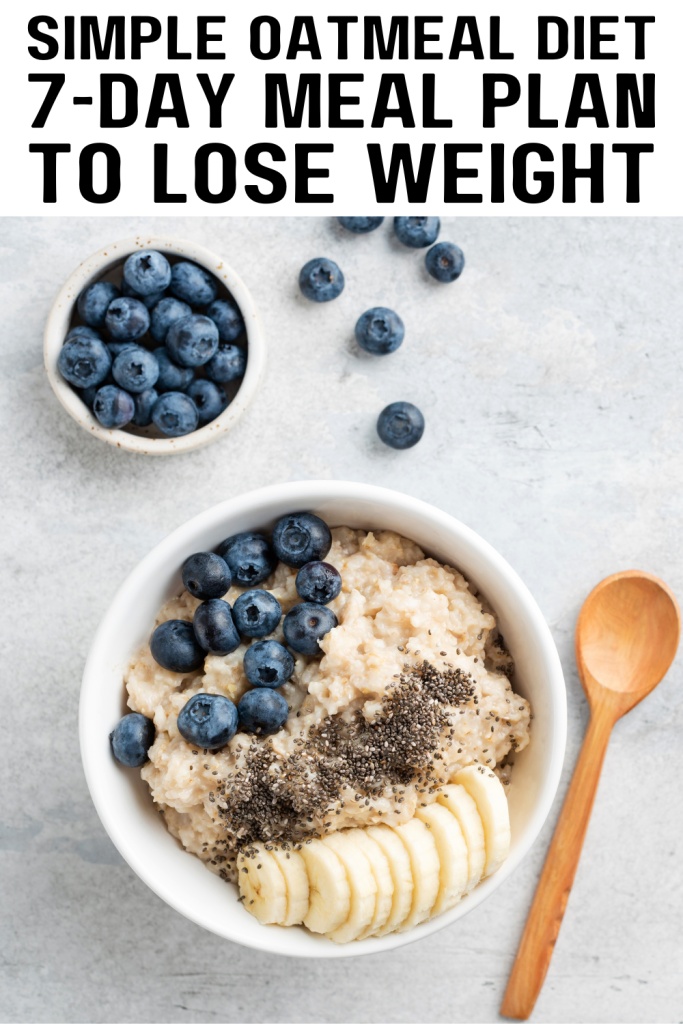
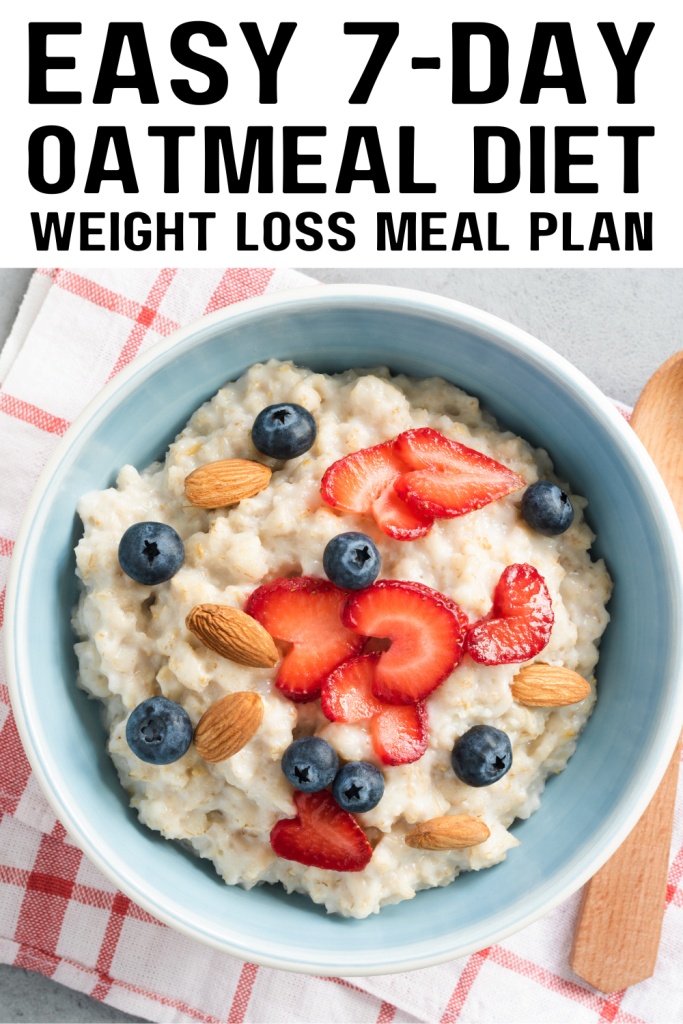
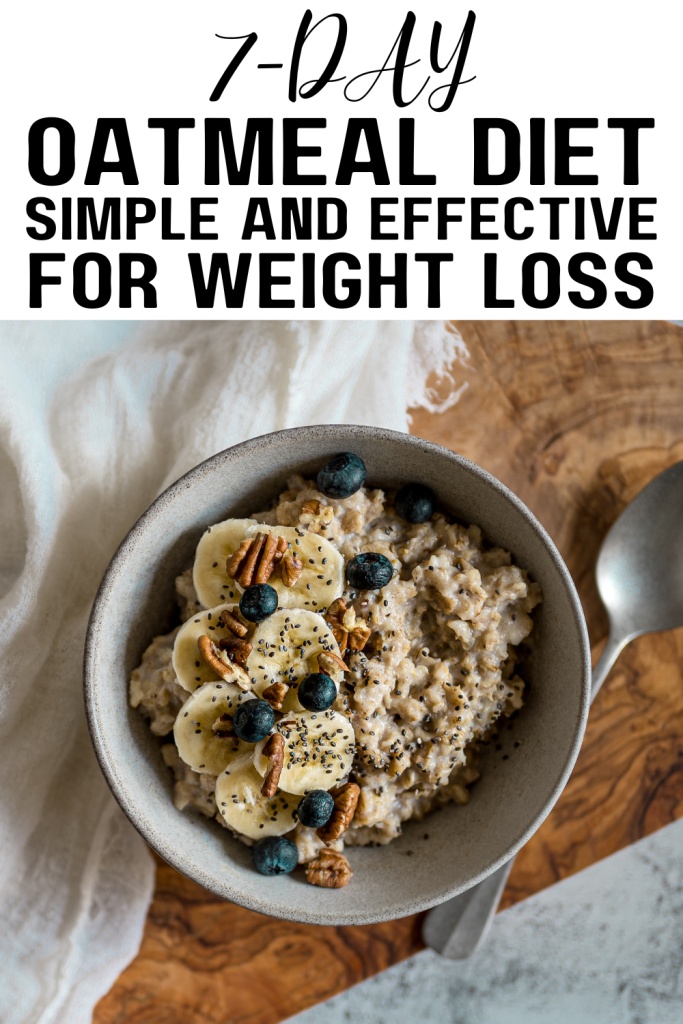
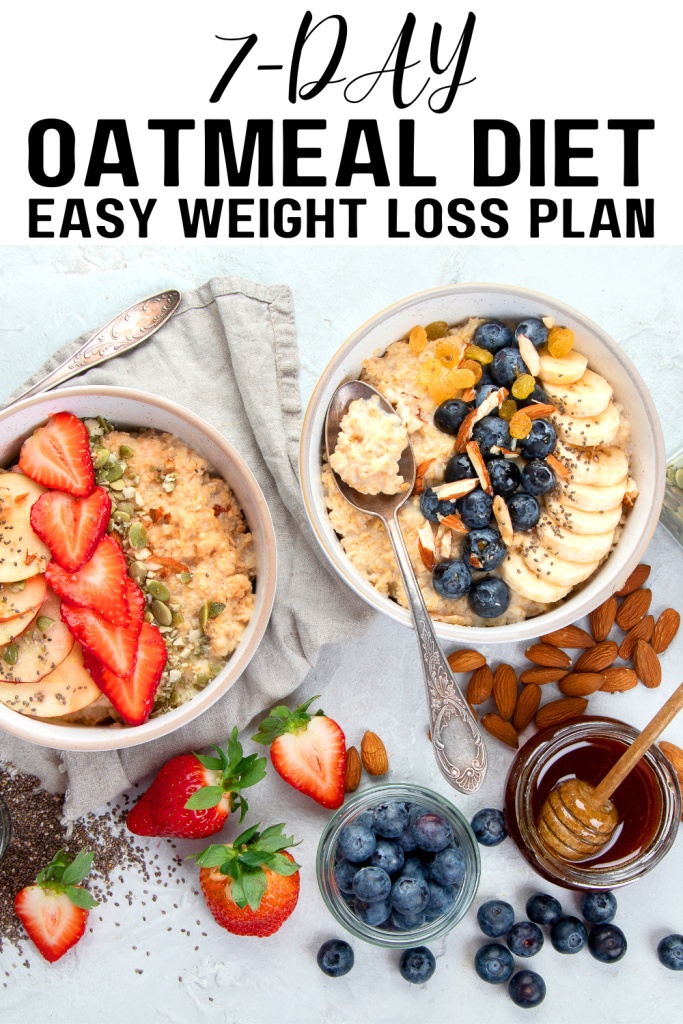
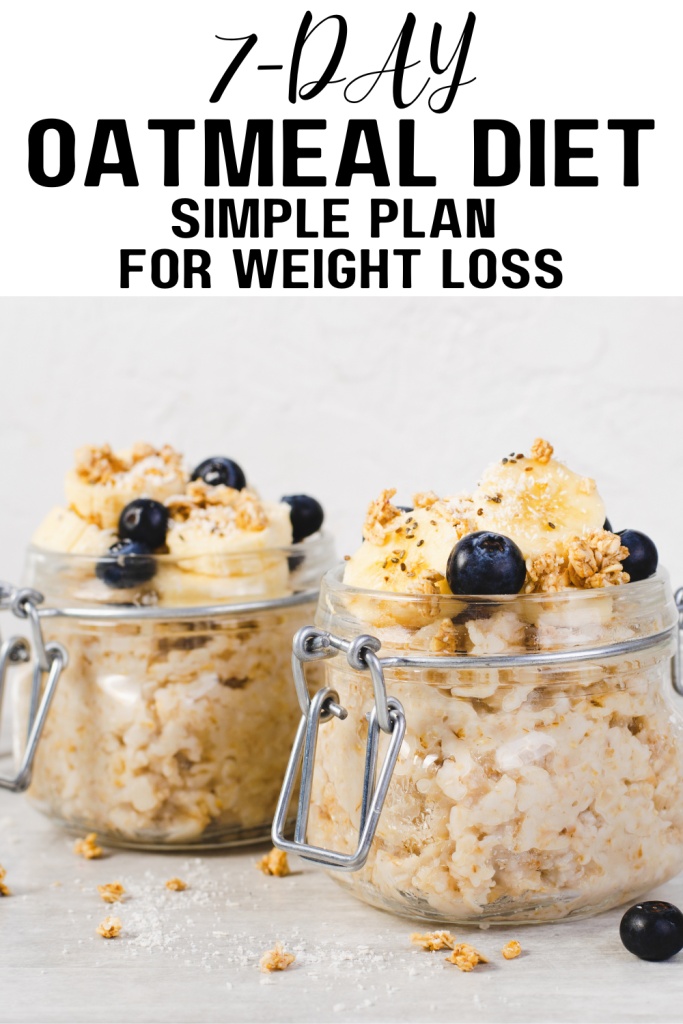





14 Responses
I’ve tried so many diets that left me feeling frustrated, but the Oatmeal Reset was a breath of fresh air! In just 7 days, I noticed a slimmer waistline and felt more energized. The meals are delicious and easy to prepare, and I never felt deprived. It’s amazing how something as simple as oatmeal can make such a difference. If you’re tired of the usual diet drama, I highly recommend giving this a try!
Thank you for your wonderful feedback! We’re so happy to hear that the Oatmeal Reset worked well for you and that you enjoyed the meals. Our goal is to provide effective and enjoyable diet plans that make a real difference without the usual frustration. It’s fantastic to know that you felt more energized and saw results in just 7 days. Keep up the great work, and if you have any questions or need further support, don’t hesitate to reach out.
This sounds almost too good to be true! I’m a bit skeptical about losing a significant amount of weight in just 7 days by eating oatmeal. Is it really possible to see noticeable results that quickly? I’ve tried so many diets before, and they usually involve cutting out a lot of foods, not just adding one in. Plus, three meals of oatmeal a day for the first two days seems like a lot. Won’t I get bored of it?
Hi Sarah, thanks for your comment! I understand your skepticism – the diet industry is full of empty promises. The Oatmeal Reset isn’t about drastic weight loss in 7 days; it’s about kickstarting a healthier relationship with food and experiencing some initial positive changes that can motivate you to continue. Many people do see a reduction in bloating and a slight drop in weight in the first week, primarily due to water weight and improved digestion. This is also a great way to cut back on heavily processed foods and added sugars and sodium. The initial two days with three oatmeal meals are meant to reset your system and curb cravings. However, as the article suggests, the plan is flexible. If you find it too much, you can adjust it, maybe having oatmeal twice a day instead of three times on those first days. And don’t forget, you can get really creative with toppings to keep things interesting! Think of it as a starting point to a more balanced and sustainable way of eating, not a strict, short-term diet.
There are many studies that support the health benefits of oatmeal, including weight loss, and I have linked some of those studies at the end of my article.
I’m intrigued by the idea of an oatmeal reset, but I’m worried about getting enough protein. I work out regularly and need protein to build and maintain muscle. Does this plan provide enough protein, especially in the first few days when it’s mostly oatmeal? Is it healthy to eat this much oatmeal for multiple days?
Hi Emily, that’s a great question! Protein is crucial, especially when you’re active. While oatmeal itself contains some protein, it’s not a complete protein source. That’s why the meal plan includes lean protein sources like chicken, fish, tofu, and eggs in the later phases. For the initial “Oatmeal Power Days,” you can definitely boost the protein content of your oatmeal. Consider adding a scoop of protein powder, a dollop of Greek yogurt, or a handful of nuts or seeds to your oatmeal. The savory oatmeal bowl for lunch also calls for adding a lean protein of your choice. This way, you can ensure you’re meeting your protein needs while still enjoying the benefits of the oatmeal reset.
While oatmeal is a healthy and nutritious food, it is not the only food you should be eating for days at a time. I would suggest incorporating some lean protein and veggies into your diet those first couple of days if you decide to give the oatmeal reset a try!
Okay, I’m a little confused. Three bowls of oatmeal a day for the first two days? Won’t I get, like, super bored of oatmeal? And is it really safe to eat that much of the same thing? I mean, variety is the spice of life, right? Also, what about the racial groups who don’t really eat oatmeal, and is this plan inclusive of them? What are the statistics on this?
Hi Ashley! Great questions! You’re right, three bowls might sound like a lot. Think of it as a jumpstart. It’s only for two days, and the savory oatmeal options in the plan help mix things up. It’s totally safe for a short period, but if it’s not for you, feel free to adjust! About inclusivity, you are right that oatmeal consumption varies between racial and ethnic groups. In the United States, for example, oatmeal is more frequently consumed by White Americans than by Black or Hispanic Americans. According to data from the National Health and Nutrition Examination Survey (NHANES), approximately 15% of White adults reported consuming oatmeal in a given day, compared to about 7% of Black adults and 9% of Hispanic adults. However, this plan can work for anyone, what is important is that it should be personalized. The key is finding healthy, whole foods you enjoy. Don’t force yourself to eat anything you don’t like!
This sounds interesting, but I’m a super busy mom. I barely have time to make myself a cup of coffee, let alone cook three different oatmeal meals a day. Is there a quicker, more convenient version of this plan? Also, what exactly constitutes a serving size? Is a cup of dry oats before cooking one serving?
Sarah, I hear you! Busy moms need all the shortcuts they can get. You can definitely simplify this. Overnight oats are your friend! Prep a big batch on Sunday, and you’ve got breakfast for days. You could also just do oatmeal for breakfast each day and follow a balanced diet for your other meals. As for serving size, a typical serving is about 1/2 cup of dry rolled oats, which cooks up to about 1 cup. But listen to your body and adjust as needed!
Oatmeal for 7 days? Seriously? I like oatmeal as much as the next person, but I’m pretty sure I’d be dreaming of pizza by day 2. Is this reset actually sustainable? Also, what about people who have different racial or cultural backgrounds? Are there any statistics on how effective this diet is for different groups? I mean, I can’t imagine my grandma giving up her traditional breakfast for oatmeal, no matter how ‘superfood’ it is. Plus, won’t I be, ahem, extra regular with all that fiber? 🚽
Hi Deborah, you bring up some great points! Seven days of just oatmeal might be tough, but the plan actually incorporates other foods too – think of it as an oatmeal celebration, not a sentence! And you’re spot on about different backgrounds. While studies like the ones by Hallström et al. (2005) and Vohra et al. (2014) have shown that the beta-glucan in oats can promote satiety and help regulate blood sugar, which may benefit weight management across various populations, individual responses can vary. For instance, about 65% of adults experience some form of lactose intolerance after infancy, making dairy-based oatmeal preparations less suitable for these individuals. Also, cultural dietary habits play a huge role in how sustainable any diet is. That’s why the plan is flexible – swap out toppings, add spices familiar to your palate, and make it your own! As for the, uh, regularity, yes, fiber does that! But it’s a good thing! Think of it as a gentle cleanse. 😉 Just make sure to drink plenty of water!
This sounds way too good to be true. Lose weight by eating more carbs? My brain is confused. I’ve always been told carbs are the enemy! And what about those of us with actual medical conditions, like, say, diabetes? Can we jump on the oatmeal train, or is this another diet that excludes people with specific health needs? Also, ‘savory oatmeal’? I’m having a hard time wrapping my head around that. Is it like oatmeal with gravy, or what? 🤨 I need some clarity before I commit to a week of potential oatmeal-induced regret.
Hi Elizabeth, I know, right? It’s like the diet world’s been turned upside down! But the carbs in oatmeal are complex carbs, which are digested slowly and provide sustained energy – not like the refined carbs that spike your blood sugar. Studies like those by Burton-Freeman et al. (2015) and Venn et al. (2019) show that oatmeal can actually help with satiety and glycemic control. However, you’re absolutely right to be cautious if you have diabetes. While research, such as that by van der Kamp et al. (2007), indicates that oats can help lower blood sugar levels, it’s crucial to consult your doctor before making any dietary changes. They can help you tailor the plan to your specific needs. As for savory oatmeal, think of it like a risotto! Add veggies, spices, maybe some cheese or a poached egg – it’s a whole new world of oatmeal deliciousness. Don’t knock it till you try it! 😄